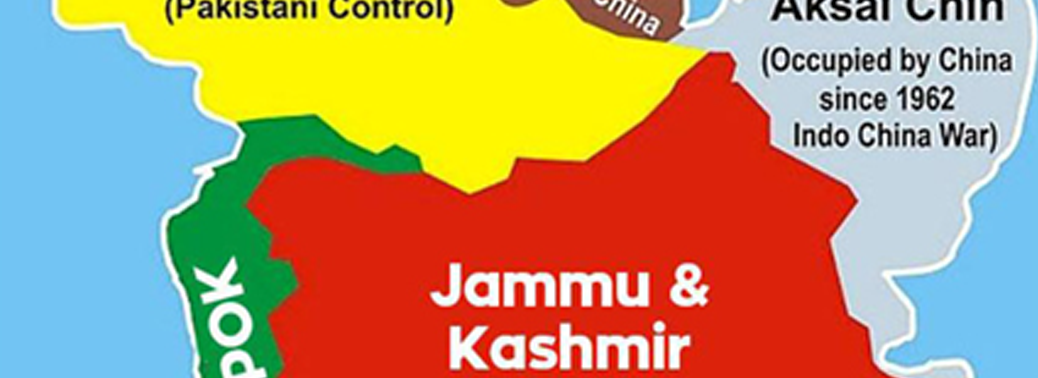INDIA PROTESTS PERMIT TO CONDUCT ELECTIONS IN GILGIT BALTISTAN
08, May 2020

Prelims level : International Relations
Mains level : GS-II Bilateral, Regional and Global Groupings and Agreements Involving India and/or affecting India’s Interests.
Why in News?
- The Ministry of External Affairs issued a “strong protest” over an order by the Pakistan Supreme Court that permits to hold elections in the region of Gilgit-Baltistan of Pakistan occupied Kashmir (PoK).

Pakistan Occupied Kashmir:
- Pakistan Occupied Kashmir (PoK) is that part of UT Jammu and Kashmir which was invaded by Pakistan in 1947.
- PoK has a population of over 40 lakhs and is divided into 10 districts.
- The capital of PoK is Muzaffarabad, a town located in the valley of the Jhelum river and its tributary Neelum (which Indians call Kishanganga) to the west and slightly north of Srinagar.
- In 1963, through an agreement, Pakistan gave over 5,000 sq km of J&K land to China in the Shaksgam area, in northern Kashmir, beyond the Karakoram.
- Pakistan occupied Kashmir is divided into two parts:
- Azad Jammu and Kashmir (AJK): attached to the western part of Indian Kashmir.
- Gilgit-Baltistan (referred to as the ‘Northern Areas’ till 2009)
Gilgit-Baltistan (GB):
- Gilgit-Baltistan is a hilly region to the north of PoK and east of the Pakistani province of Khyber Pakhtunkhwa
- It is over five times the size of PoK. However, it is sparsely populated, with just under 20 lakh people.
- GB is divided into three administrative divisions and 10 districts.
Significance of GB:
- The GB region is strategically important for many reasons as it is a source of vast glaciers feeding the Indus River system that meets Pakistan’s water needs.
- It is a gateway for China to the Indian Ocean through the China-Pakistan Economic Corridor.
- It also shares borders with several countries – the Punjab and North-West Frontier Province provinces (Khyber-Pakhtunkhwa) in Pakistan to the west, the Wakhan Corridor of Afghanistan in the north-west and Xinjiang province of China to the North.
Background:
- The British sold Gilgit-Baltistan, along with the rest of Jammu and Kashmir, to the Dogra ruler of Jammu, Gulab Singh, after defeating the Sikh army in 1846.
- However, Britishers retained control over the area through a lease of 20 years from the Maharaja to snoop on Russia.
- Raja Hari Singh acceded the entire state of Kashmir including GB to independent India in 1947.
- However, Pakistan, along with the Britishers, illegally acceded the GB to Pakistan.
- Pakistan got the possession but had no legality.
Representation of People:
- The GB people want Constitutional Status of a province but accession to Pakistan of this disputed territory is not legally tenable hence people of GB have historically been deprived of participation in representative institutions.
- The ‘Gilgit-Baltistan Empowerment and Self-Governance Order of 2009’ for the first time established a Representative Government and Legislature but neither allowed constitutionally guaranteed autonomy like other provinces.
- The GB Legislative Assembly adopted resolutions demanding status of a province till the settlement of the Kashmir Dispute.
- The ‘Gilgit-Baltistan Order of 2018’ vested powers with the Prime Minister to legislate on 68 subjects that reduced the local council to an advisory body.
- The order was challenged in the Supreme Court of Pakistan, which in January, 2019 provided them with provisional representation in the Parliament, till the settlement of the Kashmir dispute.
Administrative status in Gilgit-Baltistan:
- Though both PoK and GB are ruled directly from Islamabad, neither is officially listed as the territory of Pakistan, which has just four provinces: Punjab, Khyber Pakhtunkhwa, Balochistan, and Sindh.PoK and GB are both autonomous territories because incorporating these areas into its Pakistani map would damage Pakistan’s international position in the United Nations.
- For India as per the resolution passed by Parliament in 1994, PoK and GB are both part of Jammu and Kashmir, which is an integral part of India by virtue of its accession to India in 1947.






